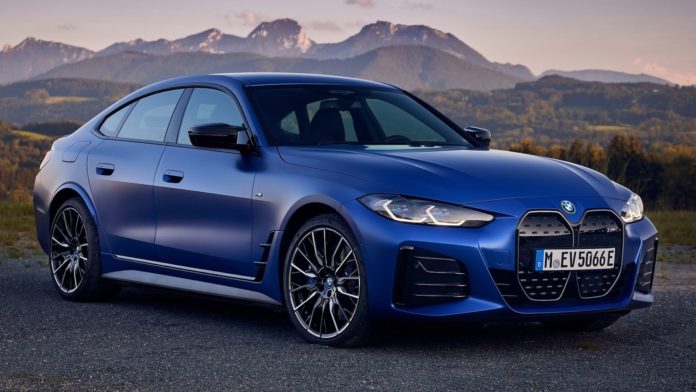Key Takeaways
- The BMW i4 will get updated electric motors and batteries in 2025
- The I4’s mid-cycle refresh is set for July 2024
- A quad-motor version of the i4 is in development and could produce up to 1,341 hp
The BMW i4 is up for a mid-cycle refresh, or Life Cycle Impulse (LCI), this year, but the more significant updates, particularly with the electric motors and battery, will arrive a year later. This timeline has been revealed on Bimmerpost by a well-known BMW insider (ynguldyn), telling us when the upgrades will arrive in 2025.
According to the leak, the i4, the most satisfying premium EV to own, according to JD Power, will receive updated electric motors and/or batteries in July 2025 for the global market. Meanwhile, upgraded US-bound i4 units will be announced in November 2024. The hardware to be used for the upgrades will be first seen in the updated i5, which will enter production a few months earlier, according to the leak.
The Catch
An update will always be good, but there’s a huge catch concerning this leakage. The insider also spilled that the i4’s LCI will arrive this year, specifically in July 2024, which should come with slight design changes but most likely keep its current powertrain setup. This means the changes in range and performance will only arrive at least a year later, so purchasing the i4 LCI won’t make sense.
Of note, the i4 xDrive40, the latest version that arrived last year, makes 396 horsepower and 443 lb-ft of torque. Its 80.7 kWh battery pack is capable of 205 kW DC fast charging speeds and has a max range of 307 miles under EPA standards.
Related
BMW i4 Gran Coupe Looks Better And Goes Further With New KW Suspension Kit
The new coilover kit is designed to work in tandem with the electric BMW’s rear air suspension.
Or Maybe Wait For The Quad-Motor EV?
The upgraded powertrains are something to look forward to, but if you want maximum power from electric BMW sedans, a quad-motor version of the i4 is already in development and expected to hit production as an electric M3 or M4. These powerful EVs could produce up to a megawatt of power (1,341 hp), though nothing’s concrete for now.

